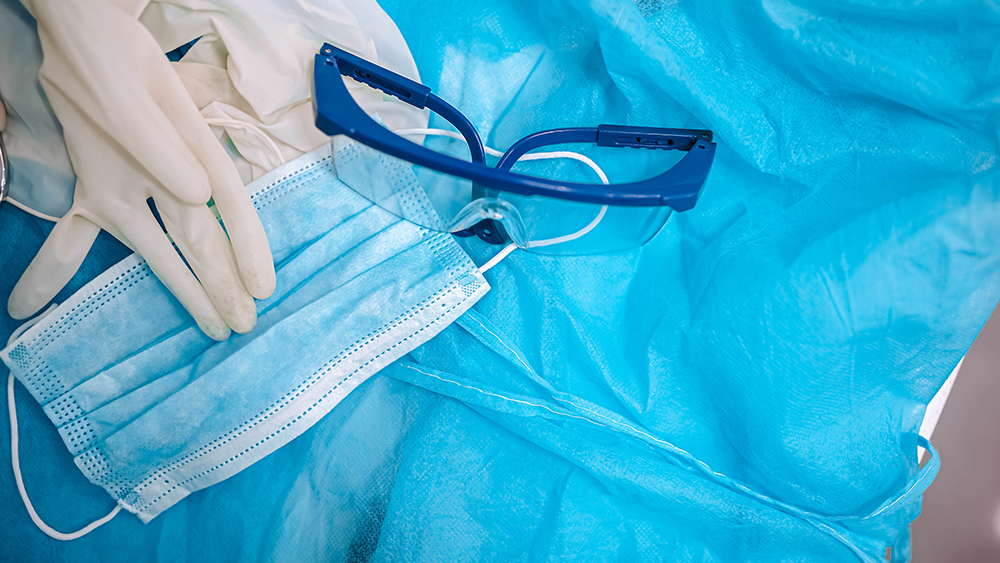Scientists developing a new mask that traps and kills coronavirus on contact
05/20/2020 / By Ralph Flores

Scientists from the University of Kentucky have received a grant from the National Science Foundation to develop a medical face mask that would capture and deactivate the Wuhan coronavirus (COVID-19) on contact. The research team, led by engineering professor Dibakar Bhattacharyya, will be working with the university’s Center of Membrane Sciences and with other collaborators to make these masks a reality.
The endowment, which provides $150,000 over one year, is part of the NSF’s Rapid Response Research (RAPID) grant, which has recently called for immediate proposals to head off the spread of coronavirus. For the new project, the team will develop porous and spongy structures with charged domains and enzymes, and use these to create masks and other flat sheet materials that will capture and deactivate SARS-CoV-2, the coronavirus strain responsible for COVID-19.
The masks work by targeting “s-protein” spikes in the coronavirus. These spikes, in particular, are what give the virus its crownlike appearance. As the coronavirus enters the mask, it will pass through a new membrane filled with proteolytic enzymes. These enzymes will then attach to the spikes of the coronavirus and separate them, effectively killing it.
“We have the capability to create a membrane that would not only effectively filter out the novel coronavirus like the N95 mask does, but deactivate the virus completely,” Bhattacharyya added.
“This innovation would further slow and even prevent the virus from spreading. It would also have future applications to protect against a number of human pathogenic viruses.”
The new membrane, developed by the National Institute of Environmental Health Sciences, is the latest in “functionalized membranes,” or highly specialized layers that can interact with undesired particles, like viruses, through selective binding or deactivation.
The process for developing and testing the masks will take around six months. After the masks are green-lit, the work will then be shored up to a large-scale membrane manufacturer, which the team has an existing collaboration with. (Related: Wearing masks to block the coronavirus is going to become the new normal.)
“We have great resources at our fingertips and many opportunities to engage in cutting-edge research across disciplines,” Bhattacharyya said.
“Our researchers work together and lend their expertise to solve challenges for the greater good of humanity, not only at a time like this, but every day.”
Making reusable masks to fight the contagion
The masks developed by the University of Kentucky is just one of many masks that are being built to battle the deadly coronavirus, which has since infected 4.8 million people around the world and killed over 321,000, according to data from Johns Hopkins University.
In particular, a mask developed by Stanford University researcher Manu Prakash uses face-snorkel masks to create reusable masks for health workers on the front lines. The mask, which he named Pneumask, has already received feedback from the Food and Drug Authority.
Currently, Prakash and his lab are working with other scientists and manufacturers in the U.S., as well as those in France, Italy and Chile, to build, test and launch the Pneumask.
“You hear that manufacturers are trying to ramp up supplies of N95 masks, but the reality is that everybody is fighting for this precious resource,” he said.
“This is a very unfortunate situation, and I wish we weren’t in this position, but we are. So we have to do everything that we can to find new solutions.”
Pandemic.news has more on the ongoing coronavirus pandemic.
Sources include:
Tagged Under: breakthrough, Chemistry, coronavirus transmission, covid-19, discoveries, face masks, health science, infections, infectious disease, innovation, inventions, oral droplets, outbreak, pandemic, superbug, viral infection, Wuhan coronavirus




















